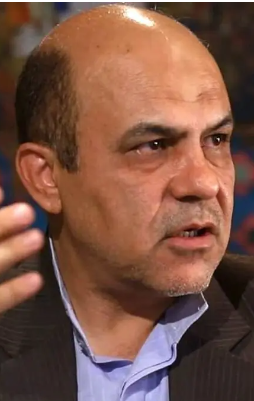May 12, 2023

A former Iranian deputy defense minister and dual British-Iranian citizen who was hanged in Tehran in January was a spy for the UK’s foreign intelligence service, The New York Times has reported.
The newspaper cited information it said it obtained through interviews with former and current American, British, German and Iranian intelligence officials.
It said Alireza Akbari provided nuclear secrets to the UK’s foreign intelligence agency, MI6, for 15 years, before he was arrested and then executed by the Iranian government in January.
As Iran’s deputy defense minister, Akbari reportedly began giving confidential information to the UK in 2004, when Iranian authorities trusted him enough to meet with ambassadors from the five permanent members of the UN Security Council in order to allay their concerns of Tehran’s potential plans to produce nuclear weapons.
It was then, according to Tehran, that MI6 recruited Akbari during a function that year at the British Embassy, offering to his family visas to the UK where they later moved – and starting assignments that would pay him a total of 2 million pounds (about $2.5 million). He also reportedly set up companies in the UK, Austria and Spain as a cover to meet his handlers.
According to the Times May 1 report, he was the source who informed British intelligence of Iran’s nuclear ambitions, revealing that Tehran had been enriching uranium at a secret underground site at Fordo.
At the G20 summit in Pittsburgh the following year, western leaders made the intelligence public, with US President Barack Obama stating that Iran was operating a “covert uranium enrichment facility” and subsequently “endangering the global non-proliferation regime.”
British Prime Minister Gordon Brown said the secret nuclear base should “shock and anger” the international community, and that it had “no choice today but to draw a line in the sand.”
Akbari also reportedly revealed the identities and activities of over 100 Iranian officials involved in the nuclear program, including Mohsen Fakhrizadeh, the chief nuclear scientist and the “father of the Iranian bomb,” who was to be assassinated by Israel in 2020.
Despite being arrested and interrogated by Iranian authorities soon after his 2008 retirement, Akbari was released and moved to London with his family, where he gained British citizenship. He continued to have deep ties with Iranian officials and visited the country three times, before Iran discovered his role in providing intelligence to MI6.
A decade after the public revelations of Tehran’s apparent nuclear aims, he was arrested and detained upon a trip to Iran in 2019, where he was reportedly brutally interrogated and then executed January 14 this year. He was 62 at his death. Iran publicly announced that he was a spy and had been hanged.
Akbari displayed a fanatical allegiance to the ideals of the Islamic Republic and unwavering support for its leaders, according to the Times’ interviews with his brother, Mehdi Akbari, and other people who knew him.
His most distinct physical feature was a dent on his forehead a sign of his devotion to Islam that came from pressing his forehead to the mohr, a clay stone used in daily prayers. He held extremist political views, expressed in fiery writings, speeches and interviews and, according to a senior Iranian diplomat and an adviser to the government, in official meetings, he argued that Iran should acquire a nuclear weapon.
“My brother was deeply religious and very revolutionary, more so than anyone in our family,” said Mehdi Akbari.
























